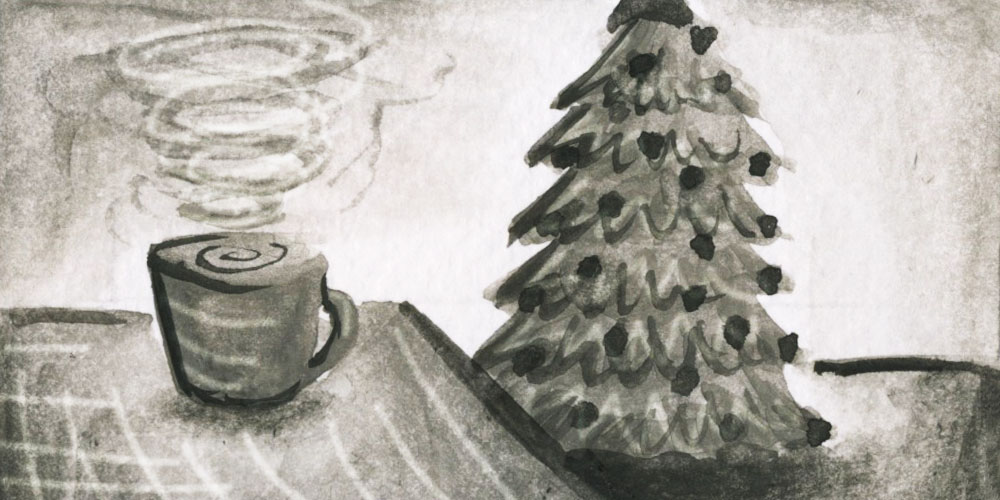I will begin with what is tantamount to a Christmas confession, so we might get to know each other better in an essay that is, in part, about leveling with people. We do less and less leveling with each passing year, as we become more guarded, fearful, quick to exchange a life lived for a pose maintained.
I love Christmas very much.
As a kid that love hit hard, fast, and it hit repeatedly. Clanging chords in me reverberated truer than the mere desire for presents — though that was cool, too — would have alone enabled them. I practically inhaled old, seasonal ghost stories. I scoured anthologies for a story or two that might have Christmastime overtones or a December setting. The holiday’s red and green color scheme suggested to me a Baltic forest having a party, which aligned well with the mystery of the season, the expectancy, the days bidding the sun farewell ever earlier, the reading that you would do in warm nooks with a cup of hot cocoa. I was married around Christmas because of this fervency, but each year I would have a kind of dread, too, as the final days of the year advanced, that soon Christmas would be a long way away again.
This will be the eighth consecutive Christmas I have spent alone, in which I will talk to nobody. That’s my confession. I cannot handle talking to anybody on Christmas anymore, though I hope — with fervor at the level of my ardency for the holiday itself — that life at a future date finds me in a better way, in a place I seek to be at. I hope I will have my reprise of earlier Yuletide joys, but with the wiser, savored perspective of an adult who has come through much and still dispenses a well-timed “ho ho” or hum a few bars of “Good King Wenceslas” on his walk to the Starbucks.
The marriage that began at Christmas ended with a ghost, though unlike in Dickens’s Carol, I was ghosted, rather than visited upon by spirits. One night, someone who represented a large chunk of my life was simply gone. A mystery had arrived, one of those locked room mysteries — but out in the open air, as if the world is the room, and its entirety becomes your prison subsequently — that doesn’t seem to have a solution, which nonetheless is stumbled upon years after the fact, a bedraggled traveler, and you have your answer, but by then, it scarcely matters what the reason was. Whether it was someone else or two someone else’s. It’s all academic by then, ghastly and grimly so.
What I’ve tried to do during this period, which keeps stretching, is retain my love for the holiday, which can feel a bit like doing Christmas calisthenics. I go to a lot of Christmas-related films (It’s a Wonderful Life, Gremlins, Christmas in Connecticut, Lethal Weapon), The Nutcracker, Messiah, programs of Bach, concerts of 15th century French carols — but I go alone. At the symphony, I tend to find myself positioned, in the second balcony, next to some comely woman in her early 30s, with a meathead of a boyfriend, stuffed into a sweater one senses he does not wish to be in, at a place he’d rather be anywhere else. If his preoccupation with checking the score of the Patriots game on his phone is any indication. To this woman I want to say, “dispense with this load, be with me, we’ll have fun and I actually wish to be here!” I envision a post-concert conversation at a nearby café in which we have a spirited debate about the soloists or the first chair violinist, but I know that would never happen, and this is likely as foreign to her as it is to the meathead. A lot of the appeal for people in these situations — people of a certain age, let’s say 20s, 30s, and 40s — is they get to pat they themselves on the back for taking their medicine and doing something cultured, and the photos play well on Facebook. I sigh the sigh of Rudolph before everything started working out for him, and I will further confess that there has been a time or two when I have indulged one of these meatheads in a high five upon the Patriots achieving another victory because he had no one else with whom to complete the gesture. A meathead left hanging is a person most forlorn. And after all, it’s Christmas.
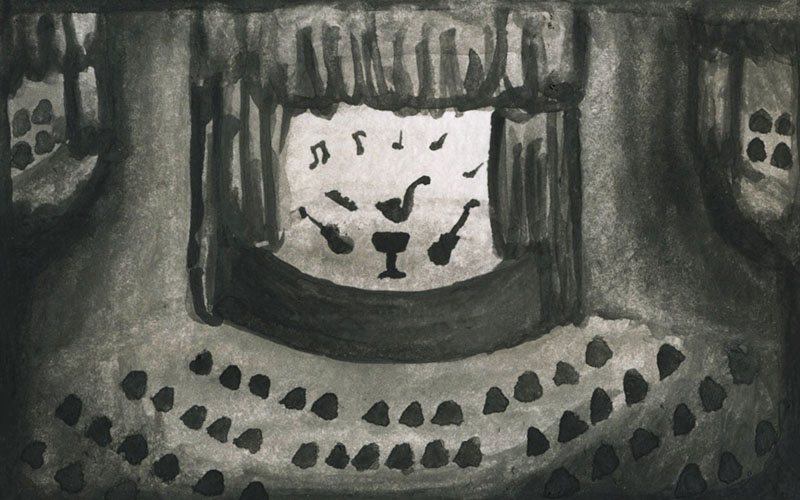
The bulk of Christmas films, in heavy rotation, are supremely festal, to the surprise of no one. Exceptions are It’s a Wonderful Life — whose theme is suicide — and 1951’s Scrooge, which is shot and executed like a horror film with a reprieve — barely — at the end. There are quiet, contemplative Christmas movies (The Holy and the Ivy), murderous ones (Black Christmas), even Christmas noirs (Blast of Silence, Christmas Holiday). What I came to crave, as I wandered the seasonal valley of loneliness, was a Christmas film that depicted the “worn universe” feel of the holiday, to borrow a phrase from George Lucas. Christmas as a time in which, for a party, a get together with an old friend, a family reunion for which we first insert a bullet between our teeth and pack a spare in our pocket, we leave the sweatpants behind, put down the glass, comb the hair — if we are feeling low — or tidy up our small apartment, hang some inexpensive décor, and turn our place and day into something quietly special. Manger-style, even.
My favorite actor is Robert Mitchum. I don’t think there is a Mitchum film I have not seen. By 1949, his career was in shambles. He had just had a run as the definitive noir actor. Out of the Past, directed by Jacques Tourneur and shot by the brilliant Nicholas Musuraca, numbers, in my view, as one of the dozen best American films. Mitchum is often described as laconic, but he was funny, as deft a distributor of uncanny, witty one-liners as the Golden Age of Hollywood produced, and you will find them even in Out of the Past even as Fate draws its net ever tighter around him. He started out in oaters (westerns), but noir was his home base come to the end of the 1940s when he was busted for pot.
It’s quaint to think, in an age when we sometimes need a break from the news for our mental health, that this was a juicy offense at the time, a big no-no; had there been Twitter, this would get you trending as even a C-level movie star, which Mitchum decidedly was not. Mitchum spent two months in jail — one less than Brock Turner — and by his accounts, he made the best of his time there, meeting interesting people, working out, and reading. Mitchum was always an intellectual, albeit an intellectual who viewed himself as a normal person who could interact with anyone.
That blend of smarts and what I think of as connective receptivity served Mitchum well as an actor. No one was better at listening in films, which lent more power — and a greater point — to the responses of his characters. 1949’s Holiday Affair was intended as a bounce-back picture by producer Howard Hughes to remake Mitchum’s image — and muster a passing show of contrition — and get moviegoers thinking about healing vibes. Not that Mitchum himself cared.
Helmed by Don Hartman, an otherwise nondescript, but capable, director who wrote a lot of screenplays, the film does something very few holiday pictures ever have: It puts forward a realistic portrait of what Christmas is truly like for a lot of people, including many who struggle with grief, loneliness, that most common of all Christmas wishes that life at this time next year will be better.
There’s lot more people struggling than I used to think. I began to notice this more after I gave up drinking. I still went to bars, usually on weekend afternoons, just to have a livelier environment than usual, see people, watch the swirl of life, drink a cranberry juice and read a book and watch the ballgame.
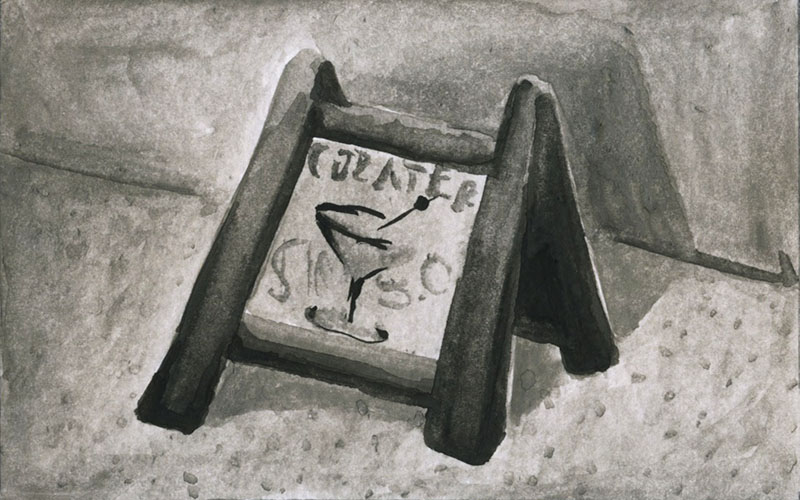
Around Thanksgiving time, you notice an awful lot of patrons by themselves in these bars. Patronage increases through the Christmas season, and they are not reading of the sleuthing exploits of Lord Peter Whimsey, as I am; they are hiding out and numbing themselves. The bars know they have clientele at the ready during these final two months of the year, because they up their advertising and signage and you practically trip over entreaties to come inside and self-medicate. More places try to get you drunk at Christmas than at any other time of the year, a business model outside of the purview of hosting your company’s holiday party.
The 21st century is increasingly predicated upon an illusion of perfection. To be perfect, it helps to take fewer risks. A college football team seeking the gaudiest of records might schedule a season full of cupcake competition. Hollow achievement. In life, we become more buttoned-down, we parrot the phrases that we have adjudged — judging being massive right now — will help us to look the best to the most amount of people. We labor to put ourselves in front of people so we can state how great we are, as if going door to door and spreading the so-called good word, only the word is all about us. “Say, have I told you about me? I have? Well, let me tell you about me . . .”
Social media is the emotional and psychological makeup of the age, and we apply liberal amounts of falsity to our profiles, we cake over the self-perceived blemishes of our lives; one of the counterculture rallying cries of the 1960s was “Let it all hang out,” but the operating premise, for millions, has devolved to “keep it all in, tuck it in hard, it matters what people think you are, not what you are, even if any remotely perceptive person can see through the charade . . . but yeah, go with it all the same.”
Mitchum would not be in a film that espoused this approach to life. In other words, Holiday Affair wasn’t akin to a Hallmark Christmas film of its vintage. Mitchum would not ooze cuddly-wuddly cuteness, but he would be sensitive, he would be struggling, and, shocker to us now, he would be open about it.
So, too, would the character played by Janet Leigh. She is Connie Ennis, a war widow with an eight-year-old son, Timmy (Gordon Gerbert, who had a short, but memorable, run as a child actor). Theirs is a broken house of tight means and the feeling of real people. By which I mean, compact apartment, a perfectly ordinary dwelling, modest, frumpy, with that used universe quality, complementary parent conspicuously absent; we might say with Oedipal implications. More on that in a bit. But family can be hard, man.
The role was one of Leigh’s first. She’s in her early 20s, which means it must not have been easy for her to exude fatigue — this is a character trying to keep so much together — despite her base level pertness, while also maintaining spiritedness, mainly through a tacit projection of it. She wants to will happiness into her home, and, more importantly, into the life of her boy. She’s a competitive shopper, a job that I presume no longer exists, which entails buying items from department stores so that the manufacturer one works for can study those items to gain a competitive edge, before returning the items for full cash refunds.
Stores, naturally, would ban you if they caught you doing this, and it is at a mall department store — which we first think is the much more romantic setting of S. Claus’s North Pole, thanks to a wonder-inducing close-up, before the camera pulls back to reveal the prosaic — where Mitchum’s Steve Mason works, hawking toy train sets.
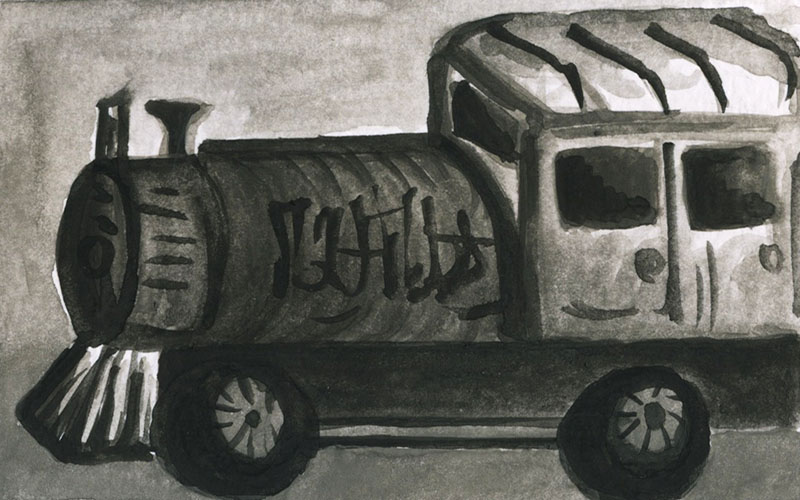
He spends his days dumping paper snow on an enormous toy engine as it makes its way around a track encircling his body as young children — mostly boys — stand six rows deep, ogling a luxury item toy. Leigh cons him, but he’s in on the con, for the most part. He has a pretty good idea of what she is up to, but something about her . . . you know how it goes. She has the exact change, down to the penny. But he doesn’t report her, and he loses a job he needs as a result. He’s borderline homeless, trying to save up funds to make his way West where he’ll work at a boating business with a buddy.
It’s a simple act of holiday charity, but not the grandstanding kind we favor now. This is charitable in the “one good turn deserves another” sense, emplaced in the give-and-take of the human community, not cut loose in the riptide of pity. I do not think I am quite at the Ambrose Bierce level of cynicism when I wonder how many people do decent things for the purpose of being able to post about those things and then subsequently bask in praise. That form of encomia is the emotional currency of the world right now. Mitchum’s Steve Mason merely wants to help. He understands what it means to need help. He needs help. This does not preclude him helping others. If Christmas has a most salient lesson, perhaps it is that. If life has a better one, I do not know that I know it.
The train is returned, Mason loses his job, he again encounters Connie in the store, making a remark — he’s on the wiseacre side of the street with it — about her family situation, not realizing that she’s a widow. She disabuses him of his notion of her comfort and ease. He feels terrible, even though he’s behaved in a manner that anyone would behave in, having lost their job. Neither person is at their best, and yet, their rapport is tacit, undeniable.
We hear that hackneyed phrase now, bandied about endlessly on dating apps, “If you can’t handle me at my worst, you don’t deserve me at my best.” A passive aggressive, vaguely threatening remark to my sensibilities, but we all understand the attempted gist. Life will lay us low. We want people to still esteem us when it does, enjoy us, even, and help us enjoy them, and ourselves once more.
Families are complicated things and there is an Oedipal undercurrent throughout portions of Holiday Affair. Connie prefers her son to speak to her as though he were her deceased husband. They use the verbal figurations of husband and wife. It’s a game, but it lingers on, past its shelf-life of cuteness, indicative of larger issues, a blocked pathway on life’s journey.
Connie is also engaged — putatively — to Carl Davis (Wendell Corey), who is more of a calming, avuncular presence than an actual suitor. He is holding a place in this woman’s life, his tailored role being that of a friend, but his heart leads him to a spot where Connie’s does not take her. She’s also clinging to the past, wishing to move forward without having to do the leg work of ambulating again, which makes Carl a welcome construct rather than man; he is a fence against which to lean. He’s being used, but he knows this, remaining aspirational that his utility might, with the right amount of time and better timing, blossom into love. If only that were how loved worked, though both he and Steve Mason, his would-be rival, are equally aware that that’s a souped-up dream a long way from the glade of love’s truths.
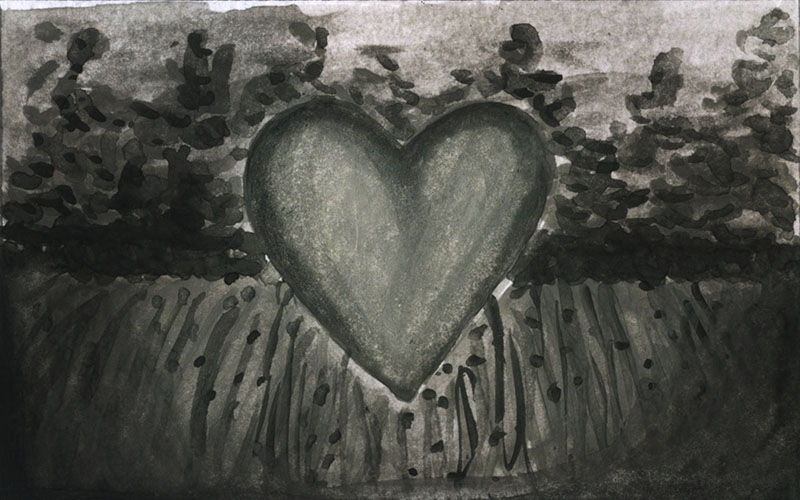
Corey played Jimmy Stewart’s buddy cop in Hitchcock’s Rear Window. His presence in films is often calming if we discount the likes of 1955’s The Killer is Loose, though in that picture, let it be said, that Corey is a calm killer. He was an alcoholic who died of cirrhosis at only 54 and each year when I view Holiday Affair, I wonder what he made of the subject matter.
We up our alcohol consumption at Christmastime, telling ourselves that it’s appropriate that we cut loose, it’s been another long year, now we deserve to make merry, but as with Tiny Tim, we often need our crutch. Crutches. More so, I think, in our current age, because gloom at the holidays will just not do. We must put on the happy face, we must have something to share on social media.
Mason spends time with these people, including Carl Davis. There will be a mix-up that employs a premise that could be shoehorned into a screwball comedy, but without the mirth. In other words, one that employs the seemingly free-for-all, mechanics of entropy — or of the arbitrary nature of the universe — but with an ice water jolt to the face, rather than a tickle of the ribs.
Not that it’s super serious — but the jokes are bittersweet, the root remaining earthen, aromatic, half in, half out, something one consumes in the field, not at the table. Screwball comedies were anarchic. Maybe more so than the movies of the Marx Brothers, the ultimate retinue of anarchists, which is saying something. Mitchum’s Mason has no problem sharing his feelings, despite the embarrassment that causes him — or, rather, what many of us would view as embarrassing. He takes risks. Emotional risks. As you watch the film, you realize that, yes, he’s taking them for himself, in part, because he is falling for this woman, but he’s also taking them on her behalf. Where she is in life, she’s likely going to marry Carl and he will drift on, making his way to the West Coast. She needs a jarring.
F. Scott Fitzgerald, in The Crack-Up essays, wrote about the blows that jar our insides such that we are never the same again. Connie Ennis has had her share of those already. We know what they are. We assume that Steve Mason has had his as well, though his past is murkier. But a man who risks like we see him risk, surely did not adopt that approach on a whim because it was Christmas, la de festive da. You live by the sword, you die by the sword, and he’s a sword guy, a Christmas sword dance guy.
You can also come back to life via the sword. The ghosts of old screwball comedies have their climax. Think of it like Jacob Marley triggering those bells in Scrooge’s rooms. In a courtroom scene, a young Harry Morgan presides as judge. He’s the perfect straight man here — his M.A.S.H. persona on display a quarter-century before the fact. Mitchum was always adroit at humor, though no one ever says this, because he didn’t make comedies. If you’ve seen Out of the Past and I reference it to you now as a way of commending Mitchum’s way with a joke, you’re not going to think there’s any way that Mitchum is funny in it, because it’s white-knuckle noir; if noir has a darkest shade of black, let’s call that hue Out of the Past.
But next time you watch it, note how many times Mitchum pulls a laugh from you with his timing, the cadences of his voice, while you scarcely realize you’re laughing — even as you do it — because laughter is not foregrounded in the picture.
We laugh in hospitals during times of great stress and loss, but we rarely remember that later, because, again, that is not the foreground focus. Mitchum is what I think of as a life actor. By which I mean, life is never all serious, nor is it all funny. It is a multiplicity in every moment. M.A.S.H. understood this, which is why the show connected with people — and still connects. Mitchum is as flat out screwed as you can be in Out of the Past, but the human condition is never, potentially, so screwed, at the level of a strong individual, that some humor cannot be emitted and emoted.
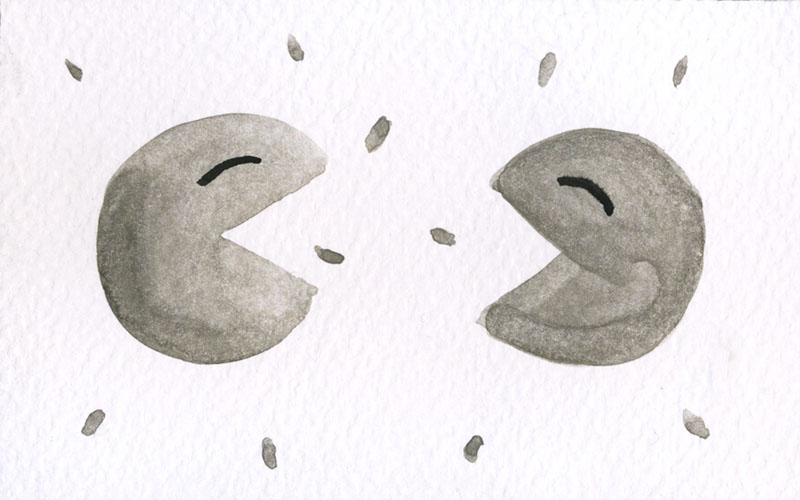
These chops served him well in Holiday Affair. You don’t want the likes of Mitchum doing gushy jokes. You also don’t want “dramedy” treacle. This isn’t punchline humor. It’s a humor of directional flow, arising from context, with angling turns. Three very serious things, for instance, might be said in succession, the third expressed in a way that suggests a jocular remark to the other person. They make the remark. They didn’t enter a situation aiming to be funny. The opportunity came to them, they took it. They angled the flow. New direction now. Mitchum’s a master at that form of humor. So was Lear’s Fool. Different intentions, but both possess the ability to facilitate geometric comedy, the humor of directional progression and redirection. That’s the difference between life humor and gag humor. That’s why life humor lasts, and gag humor is relegated to old broadcasts of Saturday Night Live, better left back in their crates.
Connie’s jarring does indeed happen before Mason gets away. He has gone away, but this being Hollywood, this being Christmas, we are going to get at least a sprinkling of magic fairy dust, an elfin greasing of the romantic skids. You can probably guess the manner in which he is traveling — choo choo — when he is tracked down. We’ve also been cleverly dealing with three love triangles. There is one between the two male suitors and Connie and two narratives involving one man Connie, and her boy. The number three, as in the holy trinity, is of course big at this time of year. Even in this quiet drama, with humorous grace notes, that plays out in a simple, low-key, non-fancy apartment, there is a comingling of the ordinary and not so-ordinary. A kiss of the transcendent. Not a big, open-mouthed, tongue down each other’s throat kiss, but a kiss all the same.
As truths are put forward free of varnish, people, lo and behold, connect with legitimacy; these are not the bonds of photo-ops, alcohol-fused temporary connections; this is a fetter-free holiday for these characters, which is why it’s a success. We have no idea what will happen between Steve and Connie. For all we know, they’ll give it a shot, it will not last and she’ll confide in Carl for comfort, their friendship now clearly established as pure friendship, not a masquerading romantic relationship. Holiday Affair does not go to the dark places that It’s a Wonderful Life does. Nobody is going to off themselves within the movie’s timeline. It’s more of a lifting from under the sod of depression, a jettisoning of the weight that comes with pretending that all is well when all is not.
We fear that when this pretending stops, we will be a lone voice, tasked with a solo we are unfit to execute. Holiday Affair is a friendship-fostering Christmas wassail, the advent of a chorus we would all be wise to join, and we need not come bearing gifts other than ourselves.•
